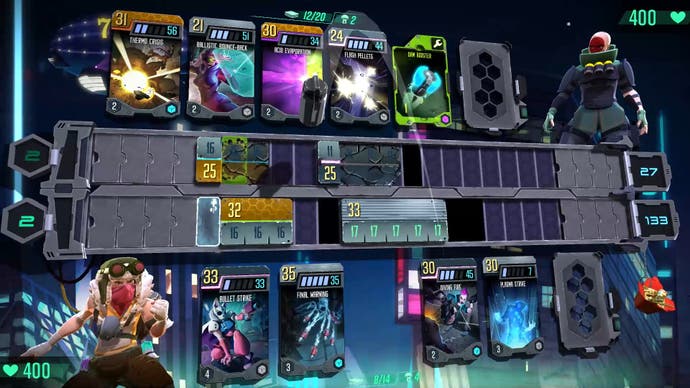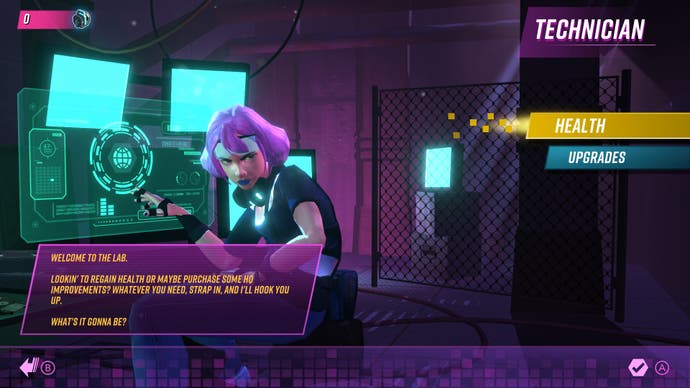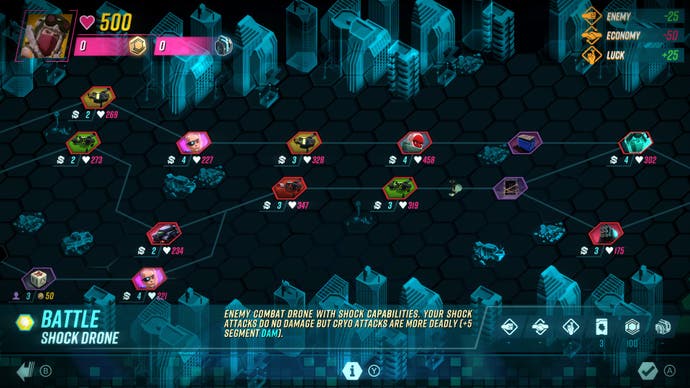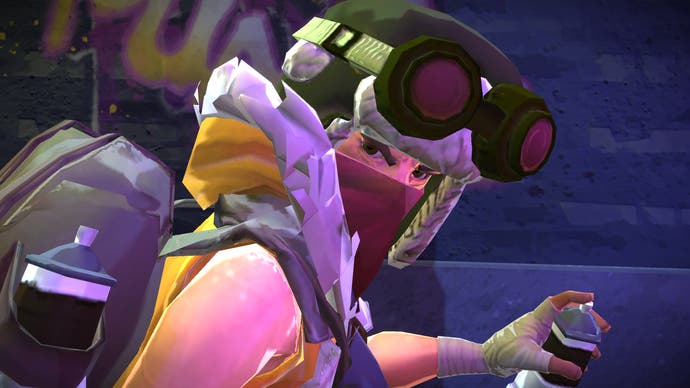City Wars: Tokyo Reign review - my new favourite card battler
Mind the gap.
Last night I got through two whole districts with almost no health, and no prospects. An early boss had whittled me down to almost nothing, so I lurched into the eternal night thinking - four health? This won't last long. For comparison, I start with 300 health, and that's rarely enough. But something happened. The City surprised me. I had a sort of unlikely cyberpunk cup run. Two whole districts on four health. I'm still thinking about it.
City Wars: Tokyo Reign is the kind of game that surprises me. It surprises me constantly, with great roguelite runs like last night's, in which I almost gave up but ended up travelling further than I could have imagined. It surprises me as I see a new wrinkle in its endless unspooling strategies, as I find a new synergy in its cards. It surprised me at the start by filling me with raw enthusiasm for a collectible card game that was also a roguelite - hardly a genre mash-up in short supply. It surprised me that I could take its initially daunting rules and make them my own. City Wars makes CCGs fresh again - it has for me, anyway. I really hope you'll play it too.
So let's get the roguelite stuff out of the way. It's a cyberpunk city filled with alleyways and midnight horrors. You choose a class and then get a randomised loadout of cards from your growing collection, a gun that works as a stats modifier, and a charm that gives you a perk of some kind.
All set? You have to get across town clearing districts and their bosses, picking paths that take you through events - maybe a hacking opportunity, maybe a dice game in a casino - shops of various kinds, treat boxes and combat. Combat's the biggy here and we'll spend most of our time on it because it's brilliant, but it's important to say the other stuff is great too. I play City Wars because of the fantastic card battles, but I also love the chunky 3D art with its lurid colours, and the neon lights to the map screen with its interesting choices. I love that dice game, even though I'm horrible at it. I love getting my randomised load-out at the start.
But the battles. Oh wow. City Wars is fascinating. If I had to describe the battles to you quickly I'd say it's like Hearthstone meets Lumines, but that wouldn't come close. In truth, City Wars is just like City Wars.
Battles have two phases. In the first you and your rival lay cards on a track to stack up potential damage against one another. The track has two rows - one for them, one for you - and there will be a gap or two in which you can't place cards. Once the cards are set, the second stage occurs. The timeline sweeps along the track and triggers the damage from each card. At the end of this round if one person's standing they win, if both are standing, you do it all again.
But that's just the surface of it. Take placing cards. There are three things above all else to think about with City Wars cards. Their damage rating, their accuracy, and their duration.
Damage rating is how much damage they will do to your enemy when they're triggered. 15 damage does 15 damage. Simple! But accuracy is equally important, because the accuracy number controls how they do against a rival card placed opposite them. So if you have a card with 15 damage but 30 accuracy and your rival puts a card opposite that has 10 damage but 31 accuracy, your card is smashed and you do no damage, but you take 10 damage from your rival. Accuracy matters!



But duration matters too. Because each card actually takes up a number of slots on the track, depending on its duration. So a card that does fifteen damage but has three duration needs three slots on the track in order to fit, and it does five damage for each of those slots - the overall damage is spread out. This means that maybe that ten damage, 31 accuracy card that's placed against it only has two duration - you'll have five damage left over in the final slot, so you'll do five damage despite your other two slots being smashed.
It's complicated, and also I've probably described it badly. But also, it takes a while to click. It took a while for me to make any progress at all in City Wars, a while in which the game relentlessly kicked me around on even the first battle. But when it clicked I realised that I had this beautiful system in my hands, which wasn't just about damaging the enemy but about making sure they didn't get any damage on me in return. I started thinking about laying cards to block attacks as much as to do damage. This is how I made it across two districts with four health. For about eight battles I managed to ensure that I took no damage at all, by smashing all my enemy's cards and competing in terms of accuracy first and damage second.
"I love that I've talked about this game of cards for 1000 words and I can still type: this is just the surface of it."
This, incredibly, is still just the surface of it. Throw in different card types, consumable cards, cards that pull enemy cards off the track, cards that trigger special stat boosts when placed in certain spots, cards with elemental attacks, cards that heal.
Ready for this? This is still just the surface of it. Throw in a mini-game that triggers when you deal damage and allows you to build up a temporary shield for any incoming damage you haven't already blocked. Throw in different enemy types and bosses which work in such a deliriously clever way I don't want to spoil it for you.
And around all this the city itself, with an economy that goes up and down depending on what you do, with officials who can be bribed to raise your luck or squash enemy health, with persistent cash you can spend on persistent perks that travel between games. For a compact game - repeated animations, limited enemy types - this game can feel as expansive as, well, as a deck of cards.
There's such elegance to the design and such a quiet confidence to the way it's all presented. I love the chunky look of City Wars and the endless moments of understanding it gives me as half-way through a battle I work out a new way to win. I love that I've talked about this game of cards for 1000 words and I can still type: this is just the surface of it. What a magnificent game. Do not let it pass you by.



